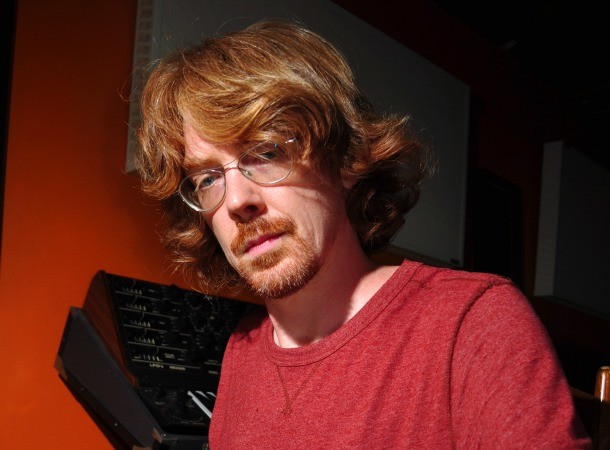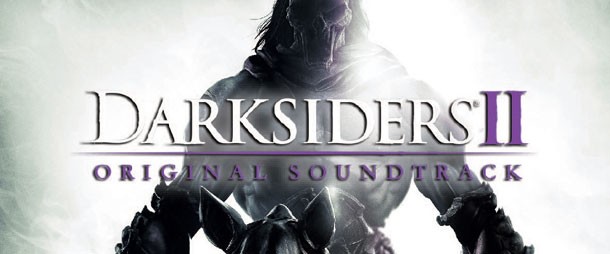Game Music Spotlight: Jesper Kyd

In our first Game Music Spotlight, we speak with acclaimed video game composer Jesper Kyd, whose music for games like Assassin's Creed and the upcoming Darksiders II is among the best in the industry. We spoke with Kyd about his inspirations in games and music, and learned about his approach to his craft.
Talk about your background. Were you interested in music at a young age? Were you involved in music programs in school?
I was exposed to music from an early age and was always playing the piano. I studied harmony and composition with a Danish classical composer. I also studied classical guitar, note reading, and sang in a choir. When I got the Commodore 64, I went from piano to being able to record 3 channel songs as well as experiment with new sounds. When the Amiga came out, my friends and I formed a group in the European Demoscene, making music for demos and going to demo parties. We also used the Amiga to control a rather large collection of synths, samplers and drum machines we had collected over the years. I also enjoyed creating "real" music with synths outside of the more chip-based music made on the C64 and Amiga.
On the Amiga I created the music and my friends were programmers who created the computer-generated images. I spent my teenage years in the demoscene experimenting with different ways to create music and trying to come up with new ideas. Growing up in the demoscene, surrounded by graphic artists and programmers from a young age really gave me an insight into how games and "visual media" demos were created with computers. So the scene was a big part of my music education and those early years of experimenting lay the foundation for my music style, allowing me to create music without rules. Had I been taught music in school, without the demoscene, my music would probably sound very different. Some people have said my music sounds different and unique, and if that’s true, I believe the demoscene played a role in this. The European Demoscene in ‘85-’93 was a very special time and it allowed me to develop my own music style free of any constraints.
Tell us about your background in game development and scoring music for games.
I became a professional composer in this industry by the time I was 18. I was part owner of a game company with my friends, who later founded I/O Interactive, and my role was always composing music. I also helped implement and design the music system for many of my soundtracks including the Hitman series and Freedom Fighters. I’m still working with the main founders of I/O who have created a new development studio in Denmark, Reto-Moto.
Following the success of Hitman I was approached to score Ubisoft’s Assassin’s Creed as well as Gearbox’s Borderlands. I really enjoy scoring different music styles for different characters, historical periods, and locations, so these are great franchises to work on. Most recently I scored Vigil Games’ Darksiders II and Gearbox’s Borderlands 2, which are very different projects with their own music styles.
Why did you decide to open a music production studio?
Well, I was always the composer, creating the soundtracks to the games we developed and I decided to branch out on my own. I moved to Manhattan while the rest of the company went back to Denmark, founded I/O Interactive and created Hitman. In 2006, I relocated to Burbank, CA.
What was the first major game project you did when you opened your business?
That would be Hitman: Codename 47 for I/O and Eidos, Messiah for Shiny Entertainment and MDK 2 for BioWare, which all came out around the same time.
Which musicians or composers have been an influence on you? Did you come from a classical background or did you like rock and popular music?
I have classical influences but I come from a more contemporary music background. I have always admired artists who create their own sound; Vangelis was an early influence. Making people feel something with mood, atmosphere, and dramatic scoring has always been my main interest. I also enjoy stepping outside of that world and working on more extreme music but I always come back to the more dramatic side of scoring such as Darksiders II and the Assassin’s Creed scores.
Were there any game scores or game music that you admired growing up?
There was a ton of game music I admired when growing up with the C64 and Amiga. From Parallax to Wizball, Martin Galway’s scores really connected with me as a kid. Also, scores by Rob Hubbard such as W.A.R., Sanxion, Delta and Knucklebusters are simply amazing. Tim Follin’s scores on C64 and Amiga were also great.
How is composing for a game different than composing for other media?
First of all, it’s important to realize that when scoring open-world games each piece of music will often be heard many times so I find it beneficial to create music with lots of depth and detail. This way, after you hear the track for the fifth time, there may still be something new in the music to discover. Also, in games the different music styles take a lot longer to play out compared to a movie. A scene in a film could go through five different music styles in one minute, whereas in games it can be more like two-minute stealth music, two-minute suspense, one-minute fighting, ten minutes of exploration, and then you work to tie all those music changes together in a seamless way.
How do you decide on a stylistic approach for a certain game? Do you base it on the subject matter? Do the game designers have some input into what style of music they want?
Usually I meet with the team first and then I get a sense of the expectations and amount of experimentation required. Sometimes a project is going for a certain time period or visual style and then I start with that. Other times I am asked to experiment without any musical pre-conceived ideas from the team. The latter is obviously more difficult but it’s also more creatively satisfying. I don’t prefer one over the other and always try to come up with music I find interesting regardless of the type of score I am working on.
Are you involved with the audio design team in planning how your music is used in the game? A lot of games stream in music dynamically depending on what’s going on onscreen. Do you have any say in that?
I prefer to be involved with the implementation process and the music system design process. However, audio departments are fully capable of doing these things, and most companies have in-house audio departments that take care of that aspect in order to let the composer focus on the music.
Your work is interesting in that you work with both electronic music as well as traditional choirs and orchestras…how do you find a balance between those two approaches?
It all comes down to what best fits the project. I really enjoying mixing these styles together and there is so much that can be explored there.

You did the music for Darksiders II, which is out soon. Talk about your approach to that project and what you tried to bring to it musically?
Vigil Games really wanted the music to help support the different environments in the game world and that’s where the majority of the music focus went. The realms are so different from each other, from Heaven to Hell and everything in-between, so I worked on combining different instrumentation and music styles to reflect the characteristics of each realm. For example, the music for The Makers realm is Celtic-inspired with lots of acoustic instruments such as bag pipes, dobro guitars, Irish vocals, and other elements. For the Dead Plains realm, I used a lot of analog synths and vintage electronics such as organs, spring reverbs, tape echo devices, analog delays mixed with other techniques. Darksiders II is also a very large game so there was a lot of music to be written. For the two-disc soundtrack, I have created an album listening experience with CD1 exploring the light of the afterlife and CD2 exploring the darkness of the afterlife.
You’ve been associated with the Assassin’s Creed series over the years, why aren’t you doing the music for Assassin’s Creed III?
Well, the industry is constantly changing. Many of the big franchises have changed their composers and I think Ubisoft wanted to do the same. I’m proud of the music we created for the Assassin’s Creed series. This year I have been busy with Darksiders II, Borderlands 2 and the live action TV series Metal Hurlant Chronicles based on the Heavy Metal comics, as well as several other upcoming projects.
Talk about Borderlands 2. That game has a sort of wacky sense of humor. Is that reflected in your music?
I find that humor in music can be tricky. Often, if there is a funny scene, the score doesn’t really need to reinstate that. Sometimes the humor element, especially in film, is derived from using some out-of-place licensed songs. However, the Borderlands 2 score doesn’t take itself too serious and the music is quite varied to fit with all the new areas you get to explore on Pandora. I worked on keeping the music deep and atmospheric with lots of melody while still maintaining an element of fun in the score.
Composing for games is interesting, in that you can create an amazing score for a game that doesn’t turn out well or sells poorly. What score of yours do you wish more people had heard?
That would be Freedom Fighters. I thought the game was amazing for its time and that it deserved much bigger marketing and sales.
What’s next for you after Borderlands 2?
I am working on a new next generation title as well as an upcoming zombie game from Microsoft. I’m also involved with the second season of the Metal Hurlant Chronicles (Heavy Metal) TV series.
Final two questions: What’s your favorite game of all time? What’s your favorite album of all time?
On consoles: Grant Theft Auto: Vice City and Assassin’s Creed II.
On PC: Activision’s Battle Zone and Interstate ’76, and Half-Life 2.
Albums would be Röyksopp’s Melody AM and Pink Floyd’s Dark Side of the Moon. Film scores would be Vangelis’ Blade Runner, Jerry Goldsmith’s First Blood and John Williams’ first Harry Potter.

Get the Game Informer Print Edition!
Explore your favorite games in premium print format, delivered to your door.
- 10 issues per year
- Only $4.80 per issue
- Full digital magazine archive access
- Since 1991









